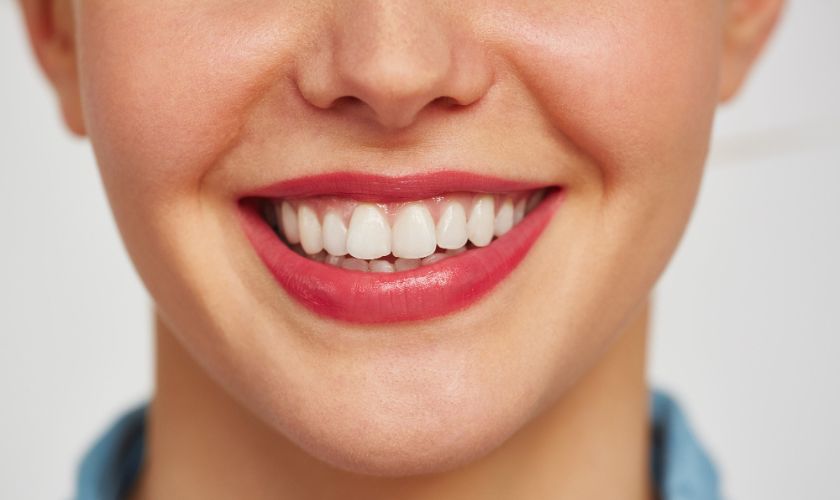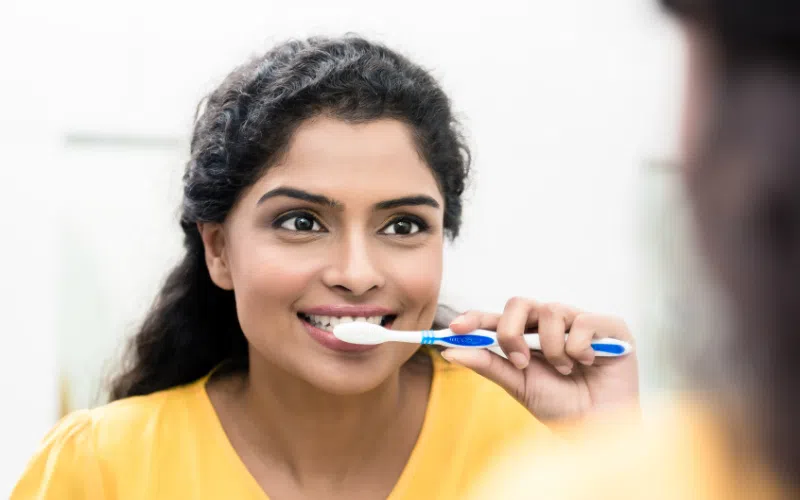Brentwood: (615) 235-1966

7 Common Teeth Whitening Myths Debunked
Brentwood, TN

A bright, white smile is a coveted feature that many people desire, leading them to explore various teeth whitening methods. However, with the abundance of information available, it’s easy to get confused and fall prey to teeth whitening myths. In this blog, we will debunk seven common teeth whitening myths to help you make informed decisions about your oral health. From natural remedies to over-the-counter products and professional treatments, we’ll separate fact from fiction, providing you with the knowledge you need to achieve a truly radiant smile safely and effectively. Say goodbye to misconceptions and hello to a dazzling smile!
Myth 1: Lemon Juice Whitens Teeth
Lemon juice is one of the common home remedies touted for its teeth-whitening properties, but it can actually be harmful to dental health. The high acidity of lemon juice erodes the protective enamel on teeth, making them more susceptible to decay and sensitivity. Furthermore, the acid can irritate the gums, leading to potential oral health issues.
Safer and more effective teeth whitening options include professional dental treatments like in-office whitening or take-home kits prescribed by dentists. These treatments are designed to whiten teeth safely and effectively without causing harm to enamel or gums. Additionally, whitening toothpaste and over-the-counter whitening products with mild ingredients can help maintain a brighter smile without compromising oral health.
Myth 2: Baking Soda is a Safe Whitening Agent
While baking soda is often suggested as a natural teeth-whitening remedy, it can be too abrasive for regular use. Baking soda’s gritty texture can wear down tooth enamel over time, leading to increased sensitivity and vulnerability to cavities. Prolonged use may also harm the gum tissue, causing irritation.
Safer alternatives for teeth whitening include whitening toothpaste with mild abrasives and low hydrogen peroxide content. Professional dental treatments like in-office whitening or take-home kits prescribed by dentists are also effective and safe options. Additionally, maintaining good oral hygiene practices, such as regular brushing, flossing, and dental check-ups, can help maintain a naturally bright smile without causing damage to teeth or gums.
Myth 3: Activated Charcoal is a Natural Whitener
Activated charcoal is often promoted as a natural teeth whitener, but it may not be as safe and effective as believed. While it can remove some surface stains, activated charcoal is abrasive and can wear down enamel over time. Additionally, its effectiveness in removing deeper stains is limited.
Safer and more effective teeth whitening options include professional dental treatments like in-office whitening or take-home kits prescribed by dentists. Over-the-counter whitening products with mild abrasives and low hydrogen peroxide content can also be used. Furthermore, maintaining good oral hygiene practices and reducing the consumption of staining foods and drinks can help prevent new stains from forming on teeth.
Myth 4: Whitening Toothpaste is Sufficient
Whitening toothpaste is marketed as a solution for teeth whitening, but it has its limitations. While it may help remove some surface stains, its whitening effects are often limited and not as dramatic as professional treatments.
For more significant teeth whitening results, consider other options like professional dental treatments such as in-office whitening or take-home kits provided by dentists. Over-the-counter whitening products with mild abrasives and low hydrogen peroxide content can also be effective. Additionally, maintaining good oral hygiene practices and reducing the consumption of staining foods and drinks can help enhance the results of any teeth whitening method.
Myth 5: Professional Whitening Damages Tooth Enamel
Professional teeth whitening, when performed by a qualified dentist, is a safe and effective procedure. The bleaching agents used in professional whitening treatments are carefully formulated to minimize any potential harm to tooth enamel. Dentists take necessary precautions to protect the gums and surrounding tissues during the procedure.
To ensure safety with professional dental treatments, it’s crucial to choose a reputable dentist who has experience in teeth whitening procedures. They will evaluate your oral health and determine if you are a suitable candidate for whitening. Following post-treatment instructions and maintaining good oral hygiene practices will help ensure the best results and preserve the health of your teeth and gums.
Myth 6: Strawberries are a Natural Whitening Remedy
While some people believe that strawberries can naturally whiten teeth due to their malic acid content, there is limited evidence to support this claim. While strawberries may have a slight effect on tooth surface stains, they are not potent enough to produce significant whitening results. Additionally, the natural sugars in strawberries can promote tooth decay if left on the teeth for extended periods.
For safer and more effective teeth whitening, consider professional dental treatments or dentist-recommended at-home whitening products. These options are specifically designed to brighten teeth safely and efficiently without compromising oral health. Always consult with your dentist before trying any teeth whitening methods to ensure they are suitable for your dental condition.
Myth 7: Teeth Whitening Works Instantly
Teeth whitening is not an instant process, and it’s essential to have realistic expectations. While some over-the-counter products claim immediate results, professional teeth whitening typically requires multiple sessions to achieve noticeable changes. The whitening process involves breaking down stains and gradually revealing a brighter smile over time.
Individual results may vary based on factors like the severity of discoloration, enamel condition, and lifestyle habits. It’s also important to note that teeth can become stained again due to dietary choices and habits like smoking. To maintain the results, periodic touch-ups may be necessary.
Your dentist can provide personalized guidance on teeth whitening and help you understand the expected outcome for your specific case.
In conclusion, it’s essential to separate fact from fiction when it comes to teeth whitening. Debunking these common myths can help individuals make informed decisions about their oral care. Lemon juice, baking soda, and activated charcoal are not safe or effective teeth whitening agents, and relying solely on whitening toothpaste may not yield desired results. Professional teeth whitening is a safe and effective option when performed by a dental expert, providing gradual, lasting improvements in teeth appearance for a brighter and more confident smile.





